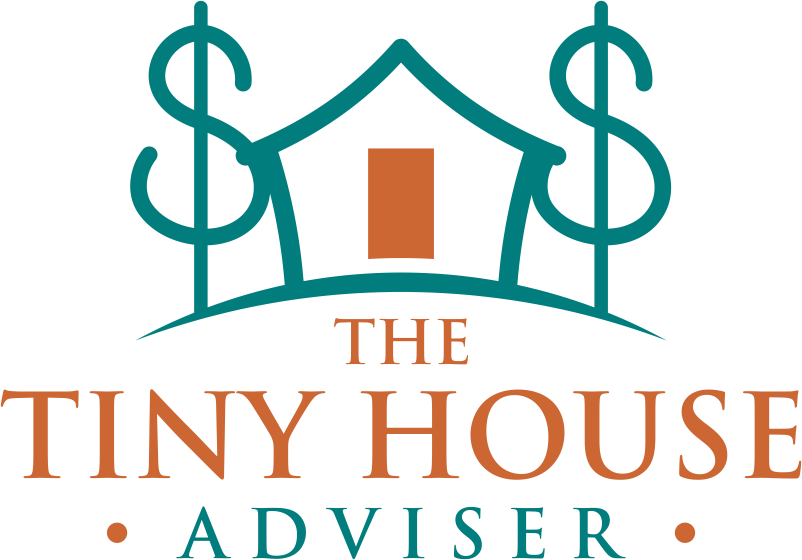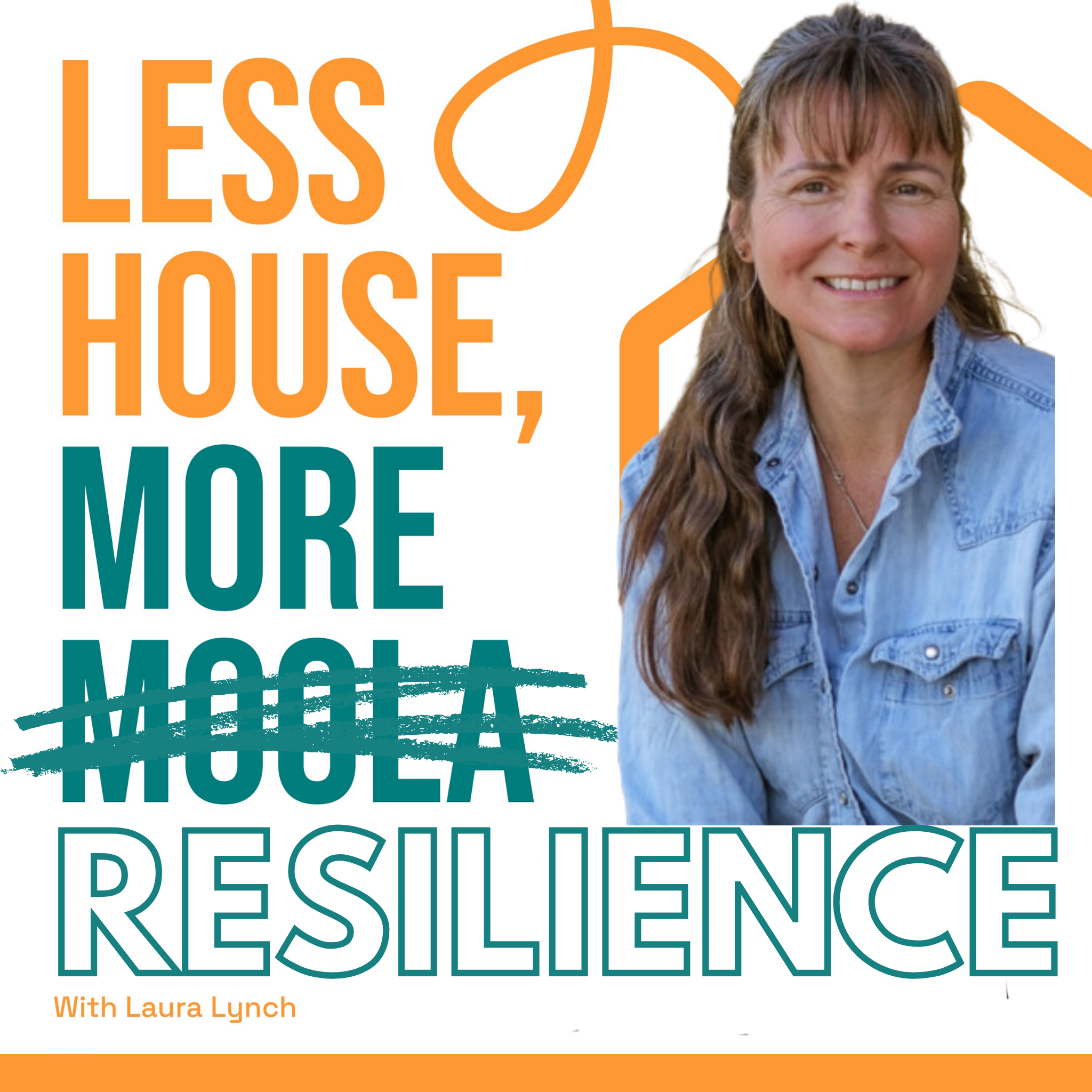Less House More Moola Resilience
tiny house podcast
Host and financial planner Laura Lynch shares practical tips and inspiring interviews about downsizing to an unconventional lifestyle, boosting financial resilience, and being adaptable in times of uncertainty.
The podcast that’s about Resilience in alternative living
Welcome to the Less House More Moola Resilience podcast, where we delve into tiny and alternative living as a foundation from which we build our resilience in the face of uncertainty. I'm your host, Laura Lynch, and together we'll embark on a journey of exploring how alternative living arrangements allow us to activate our adaptable resources and build unconventional and multi-dimensional wealth.
Through captivating interviews, invaluable industry resources, and personal insights, this podcast aims to guide you towards a life of resilience. By unpacking a fuller definition of wealth and exploring unconventional living arrangements we will unlock a deeper connection to the things that truly matter. Join me in this time of change as we redefine the meaning of security and challenge the status quo.
Listen to the Latest Episode
Subscribe on Your Favorite Platform
Subscribe to Less House More Resilience on your favorite podcast platform and never miss an episode.
Apple Podcasts | Spotify | Stitcher | Amazon Music | YouTube | RSS
Previous episodes of Less House, More Moola
About the host, Laura Lynch
Laura holds a Master of Education (M. Ed.) degree and is a Certified Financial Planner (CFP®), Accredited Behavioral Financial Professional (ABFP™), Certified Divorce Financial Analyst (CDFA®), and an Accredited Asset Management Specialist (AAMS®).
My alternative Living Philosophy
-
My path in life has illustrated that checking each one of the expected boxes (education, career, house in the suburbs, 2.5 kids, retirement at 65) is not always feasible or in alignment with our values. I believe that alternative living arrangements are one lever we can pull to in order to make more progress in another area of higher priority, such as financial security or making an impact.
The 2023 average price of a home in the United States is at $428,700, and the total amount paid for that home over 30 years on principal and 6% interest will be $925,298.32. The total combined mental and physical effort required to simply fulfill the basic need for shelter represents for many up to 40% of their net income. This high cost of a home limits precious time and financial resources available for higher level pursuits like community improvement, family focus and creativity. Career risk taking for me seemed far more terrifying when there was a mortgage payment due. I believe we could all benefit from more critical thinking and problem solving and less playing it safe for the mortgage payment due.
And one more thing. For those of us living or expecting a season of solo-aging, a single family home can compound the loneliness endemic in modern society. Humans are wired for connection. Alternative housing options that gather community support wellness.
-
In our AI world, specific advice is worth paying for. Portfolios alone are not.
I spent five years in a brokerage and asset management environment and learned a great many valuable things. One of which is that incentives influence motivation.
When I was paid based on assets under management or by commission, I was always motivated first to transfer assets to manage before helping clients untangle their financial complexities or build a plan for their future. Likewise, clients didn't always seem to make the connection that they were paying for an experienced financial partner who could translate the lingo, point out blind spots, and guide them through the puzzle of financial rules, processes, and best practices, along with advising them on how to build, adjust, and spend an efficient portfolio.
This is why my business model is fee-for-advice only for new clients. Of course, I believe there is tremendous value in being shoulder to shoulder with you when times are rough in the markets. I do my best work for you when I help you make good decisions with the assets that are the fuel for your goals. However, what I am paid for is advice specifically curated for our lifestyle and available no matter your total amount of savings.
Particularly for the alternative living community, there isn't yet an algorithm that can effectively help you plan a tiny pivot, pinpoint your top two values and use them to build your impact, or live to age 100 in your tiny home.
-
I believe in strategic investing in a variety of assets, not because I am a fan of the inequality created by our flawed system but because diversified investments are a tool for building the security needed to overcome rising costs and the wealth needed to fund impact.
Investing, though, requires base-line optimism—a belief that trends of the past will continue. Optimism is only possible with a critical awareness of the attention economy and how all the screens are at least partially funded by our fear. The overwhelming amount of bad news available in redundancy at our swipe is easily able to target our human biases and crumble the best laid investing plans. Therefore, we investors must manage our behavior and attention. In order to stick with a plan, we must be stubborn in our belief in the resiliency and creativity of humankind.
With that said, we do not have guarantees that the past will repeat itself or even rhyme. We are living in a time of unprecedented speed and compounding change. No one knows what the ideal assortment of resources will be for each subsequent crisis we will face. Thus, I also believe in cultivating personal skills that enable cooperation, confidence, and the capability to be ready to help yourself and your community.
However, I do not believe that we can financially solve for uncertainty. Understanding the difference between risk (such as market swings, interest rates, inflation, isolation, and longevity), which may be mitigated, and uncertainty (such as total economic collapse or nuclear war), for which we cannot effectively plan, is a first step in crafting a financial plan. I plan within the risk space and leave the safe rooms and ammo to those who intend to survive a dystopia.
Connect with The Tiny House Adviser on Social
Follow The Tiny House Adviser on social media to stay up-to-date on the latest news, tips, and stories from the tiny house community.











